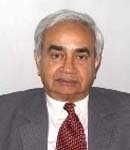The Iraq Survey (Duelfer) Report
15 Oct, 2004 · 1526
P R Chari reviews the tactful nature of the much overlooked, but important, Iraq Report
Ken Bingley's inhuman beheading in Iraq and the Presidential gladiatorial debates in the United States has deflected attention from the 1200 page Iraq Survey Report submitted by the CIA weapons inspector Charles Duelfer after a 17-month investigation by his 1500-member team. Its major finding is that Iraq had destroyed its Weapons of Mass Destruction (WMDs) soon after the first Iraq War in 1991; in other words, it did not possess any WMDs in 2003, which was the stated reason for the American attack and invasion of Iraq.
What is the Report's other major findings? First, that Saddam Hussein had asked his officials to sustain the "intellectual capacity" to manufacture WMDs quickly, if required. Second, that Saddam Hussein deliberately set about creating the ambiguous feeling that he possessed WMDs or could acquire them at short notice, which became an "integral element" of his regime. Third, that Saddam Hussein had subverted the UN sanctions imposed on Iraq through a voucher scheme, which allowed its beneficiaries to procure cheap oil supplies from Iraq under the UN-sponsored Oil-for-Food programme. These could then be sold to oil traders through middlemen with profits and kickbacks accruing to all involved in this network. The list of beneficiaries, incidentally, includes Vladimir Zhirinovsky, founder of Russia's Liberal Democratic Party, George Galloway, a former Labour MP from UK, and Benon Sevan, a UN official in charge of the Oil-for-Food programme.
The beneficiaries named in the Iraq Survey Report have, quite expectedly, denied its allegations. Both UK and the US had similar comments on the Report, suggesting prior consultations between themselves to present a united front against its findings. Tony Blair has stated that Saddam "had every intention of redeveloping those programmes and weapons of mass destruction, [and] that he was retaining teams of scientists and the facilities to do so." The White House noted that Saddam "retained the intent and capability to produce weapons of mass destruction. It [Report] shows he was working to undermine the sanctions that were in place, through a number of different schemes."
Clearly, both Blair and Bush have decided to underplay the fact that there were no WMDs in Iraq, although this was the reason advanced for their attacking that country. Indeed, it is hard to imagine how Iraq could have concealed its WMD programmes from the prying eyes of dozens of IAEA inspectors who had the run of the country for more than seven years after the first Iraq War ended in 1991. Instead, the Blair-Bush duo has decided to highlight the future threat arising from Saddam Hussein's single-minded search for acquiring WMD capabilities. Phrased differently, it was Saddam Hussein's intent to manufacture WMDs that was deemed culpable; his lack of present capability to make them was not the relevant issue. The evil intentions of Saddam Hussein, therefore, provided the motivation to attack and invade Iraq, in anticipation of the contingency when it would become a WMD security threat.
President Bush's much-quoted speech to West Point cadets in June 2002 bears the germs of this hypothesis when he declared, "If we wait for threats to fully materialise, we will have waited too long." It could be argued that every nation has an inherent right to defend itself by preventing an attack upon it by a hostile power. In fact, Article 51 of the UN Charter adumbrates that, "Nothing in the present charter shall impair the inherent right of individual or collective self-defence if an armed attack occurs against a member of the United Nations, until the Security Council has taken the measures necessary to maintain international peace and security." This right may accrue if the threat of attack is imminent, and before the Security Council is seized of the matter. Otherwise, the pursuit of pre-emption as national policy would place a premium on opportunities for attacking adversaries being sought, with threat assessments becoming irrelevant.
Intelligence agencies are currently in bad odour due to their penchant for providing their political masters the assessments they desire to pursue their predetermined objectives, and this credibility crisis might also explain why the Iraq Survey Report has attracted so little attention. It has been clever enough, however, to provide both the protagonists and antagonists of the Iraq War the arguments they require to bolster their cases. Those in favour of the war will find comfort in the Report's findings that Saddam was imbued with an unquenchable lust for WMDs, he was a menace to international society that needed to be removed. Those against the war will find their suspicions confirmed that there never were any WMDs in Iraq, and that the Blair-Bush duo was being somewhat economical with the truth in urging this justification to attack Iraq.
Intelligence agencies and writers of Reports will have noted this artfulness for future emulation.


